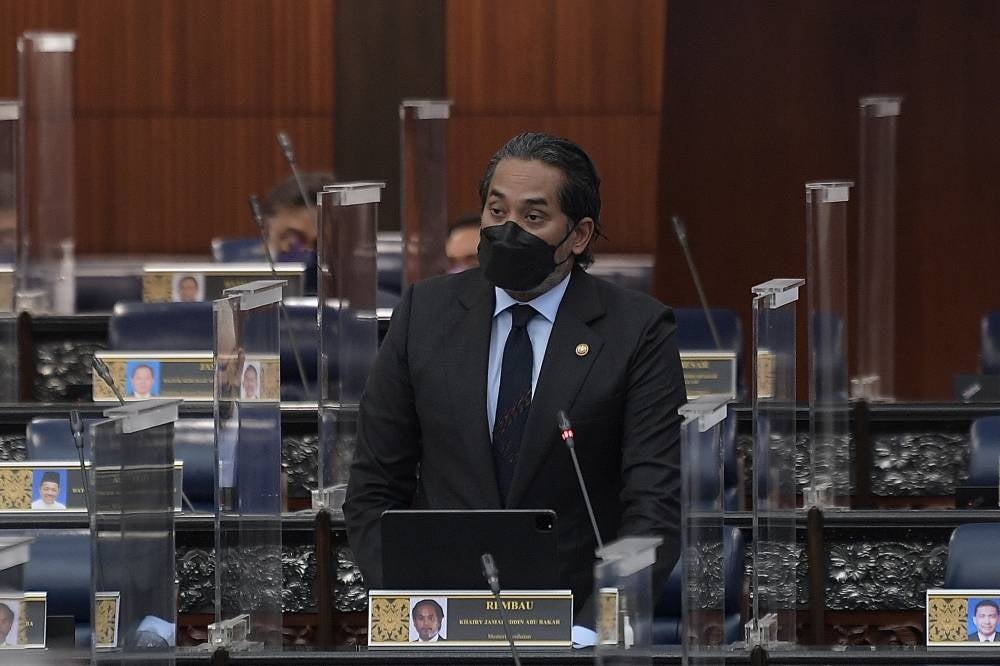March 31 final date for Sinovac recipients to get booster jabs

KUALA LUMPUR - The Health Ministry will not extend the period for Sinovac recipients to get their booster dose which was set until March 31.
Its minister Khairy Jamaluddin Abu Bakar said starting April 1, the vaccination status on the MySejahtera app for those who still refused to receive their booster dose would be changed to ‘incomplete’
“The period given has nothing to do with the Johor state election, but to give time to those to complete (booster does) within the extended period and this is the final extension.
“If they do not receive their booster dose by March 31, their vaccination status will be changed to ‘incomplete’,” he said.
Khairy said this in response to questions posed by Datuk Seri Dr Dzulkefly Ahmad (PH-Kuala Selangor) during a question and answer session at the Dewan Rakyat sitting, on Wednesday.
Previously, the ministry set Feb 28, as the deadline for Sinovac recipients aged 60 and above to get their booster dose, but it was then extended to March 31.
Khairy further stated that the ministry’s initiative to allow people to choose the vaccine of their preference at the vaccination centre (PPV) has successfully increased the people’s confidence to get their booster dose.
“We decided to ensure that first, we have given booster doses widely to everyone through walk-ins at PPVs.
“Secondly, to give options to those who have yet to receive their booster dose because they refused to receive a combination booster dose from the primary dose.
“We also gave (vaccines) options at several PPVs and this has helped increase the number of booster dose recipients,” he said.
Meanwhile, in his response to Oscar Ling Chai Yew's (PH-Sibu) question, Khairy said the ministry has reactivated the National Covid-19 Rapid Response Task Force (RRTF 2.0) on Feb 7 to deal with the threat of the Omicron wave.
"This is to ensure that access to the Covid-19 Low Risk Quarantine and Treatment Centre (PKRC) and the hospital is secured, as well as to conduct Covid-19 positive case monitoring through virtual Covid-19 assessment centres (CAC).
“The ministry is also developing the Covid-19 Clinical Care Pathway to begin using antiviral drugs to the high risk Covid-19 patients at the early stage," he said.
He said compared to the Delta variant, the Omicron variant spreads more easily in the upper respiratory tract, making it more contagious.










